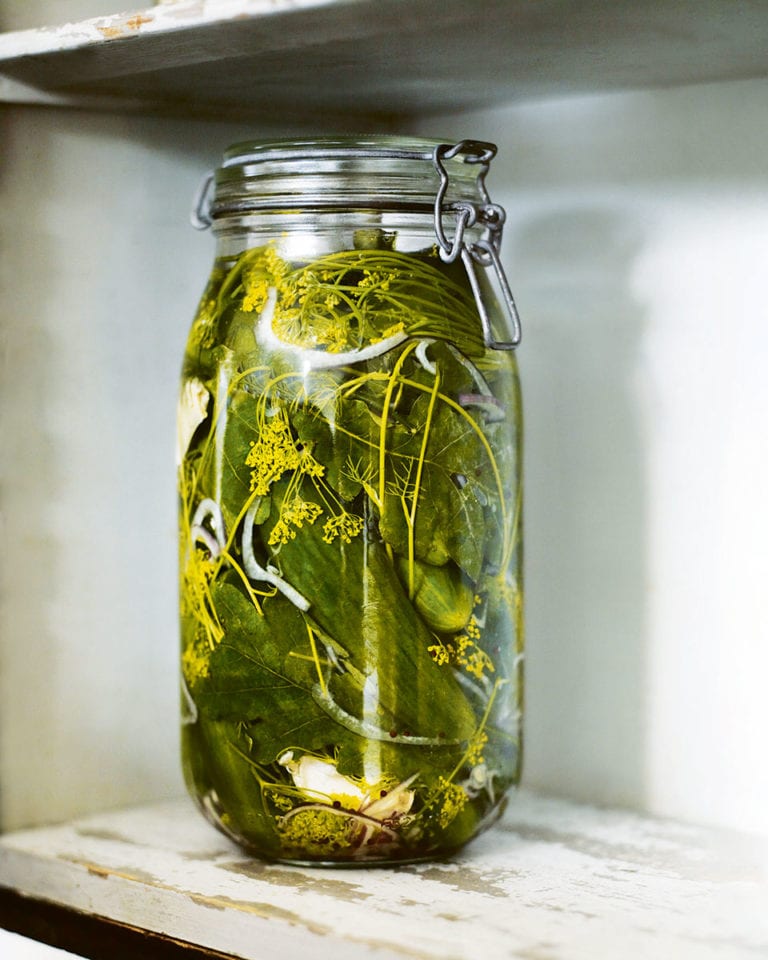Five ways to eat better in 2024
Looking to improve your diet and health in 2024? With so much nutrition advice to digest these days it’s difficult to know where to start. Sue Quinn talks to experts who offer practical suggestions, based on the latest science, to nourish mind and body…
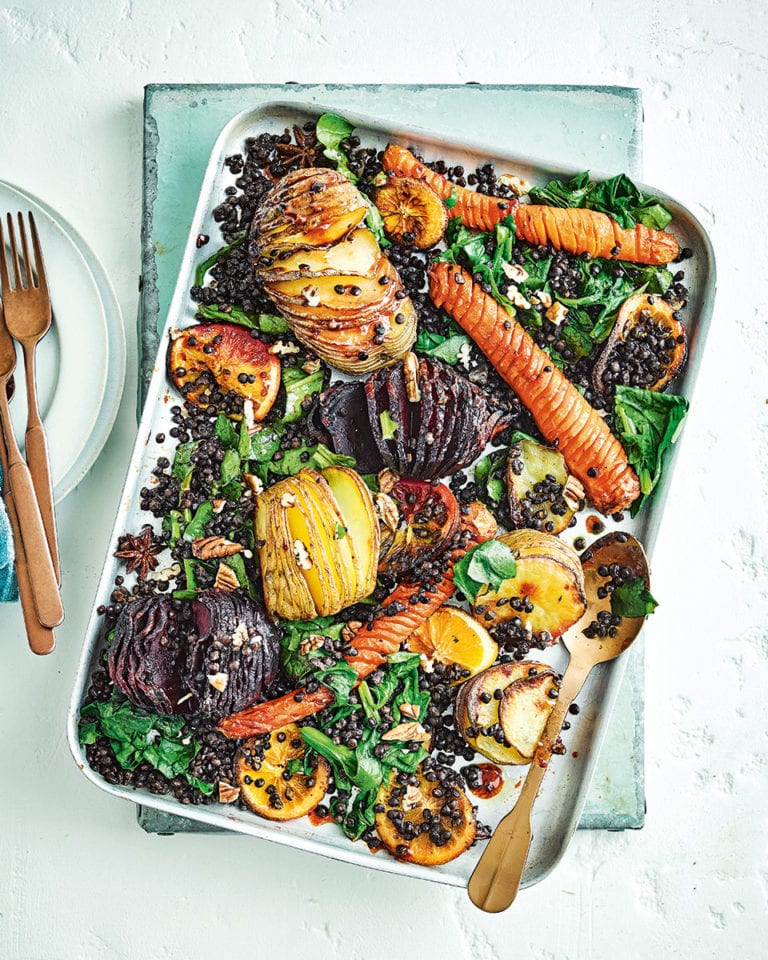
Nutrition is one of the fastest moving areas of science; every day new research emerges about how food affects physical and mental health. But many of the findings are complex, and headlines and social media don’t always present them accurately. What’s more, nutritionists themselves sometimes disagree when it comes to applying the science to our shopping baskets.
Experts are united, though, on key points that have emerged from recent research – and they’re worth bearing in mind when planning your meals this year.
1. Cut back on ultra-processed food (UPF)
Ultra-processed food was rarely out of the headlines in 2023, with several studies showing it damages our health in many ways. It’s not just the obvious products like shop-bought ice cream, biscuits and confectionery that are problematic; more surprising foods like supermarket bread, ready-meals, breakfast cereals, flavoured yogurts and condiments are UPF too. (Check the label and if there’s an ingredient you don’t normally find in a standard kitchen cupboard, it’s probably UPF.)
“The rapidly growing body of research in this area clearly suggests that UPF can increase the risk of disease,” says Rob Hobson, registered nutritionist and author of a new cookbook, Unprocess Your Life (Thorsons £18.99). It’s not only because UPF often contains lots of refined carbohydrates (like sugar) and unhealthy fats, but also additives like flavourings and emulsifiers.
But it doesn’t have to be all-or-nothing; simply reducing your intake of UPF can reduce your risk of disease and ill-health. “Focus on small changes that become habitual, like making your own tomato ketchup each week or baking your own bread,” Hobson says. “If that’s all you did in the first instance, it would be a step in the right direction.”

2. Focus on your overall diet
Forget about dividing food into ‘bad’ and ‘good’, advises registered nutritionist Lucy Burney. “Research suggests focusing on removing ‘bad’ food results in increased cravings and poor adherence.” Think instead about ways to add healthier food to your diet. “Not only does this generate better results, but it also creates a positive approach to changes that are likely to help you feel better,” she says.
One strategy is to aim to eat 30 different plants each week. “It’s optimum for health, largely because it encourages healthy bacteria to flourish in your gut,” Burney explains. “It’s actually easy when you consider plants include herbs and spices, nuts and seeds, pulses and grains as well as fruit and veg.”
Rather than feeling pressure to ditch certain foods, consider better ways to consume them. “For example, eating chocolate at the end of a meal rather than as a snack on an empty stomach could have less of an impact on blood sugar levels,” Burney says. (Fluctuating blood sugar can affect our mood, concentration and overall health.) Try eating vegetables with every meal – even for breakfast – and carry a stash of fruit, nuts and seeds with you in case hunger strikes when you’re on the move.
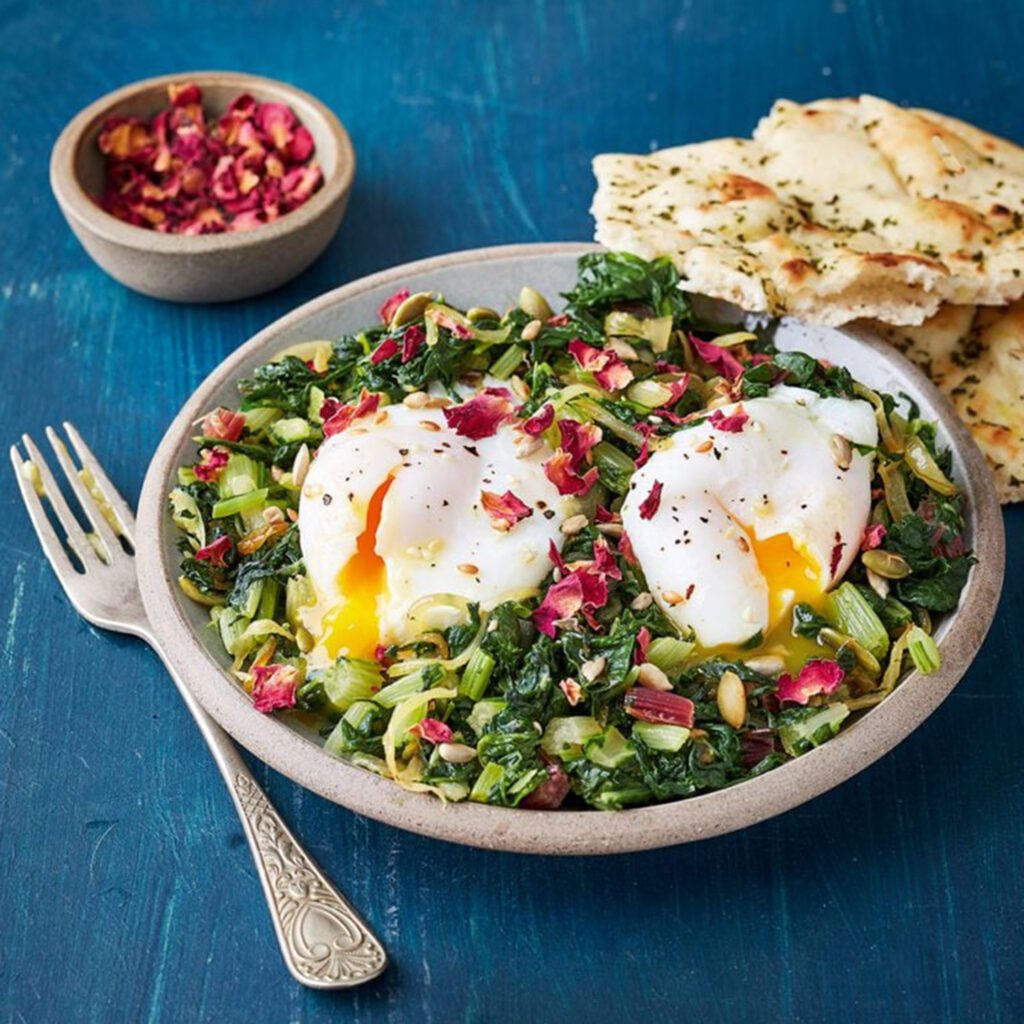
3. Eat brain health and mood-boosting food
Research is mounting that the power to control anxiety, low mood and even depression could be at the end of your fork. Dr Uma Naidoo, a US psychiatrist, professional chef and nutrition specialist, has used the latest science in a new book, Calm Your Mind With Food (Bloomsbury Tonic £14.99).
“Your diet and metabolic health also shape your mental health,” Dr Naidoo says. “The gut and brain are connected and trouble in one area can reverberate in the other. For example, an unhealthy diet can throw out your gut microbiome and drag down your mental health. And anxiety can disrupt your microbiome.”
Many foods we think of as treats – sugary and ultra-processed products, for example – can “mistreat the brain” by disrupting the production of chemicals like serotonin, which regulates mood (among many other things). “Just don’t eat them too often,” Dr Naidoo says.
Foods that support our mental health include fibrous ones such as leeks, garlic, onions, bananas and oats. They encourage the growth of healthy gut bacteria, which affect our mental health via the gut-brain axis. Colourful veg, healthy fats (avocado oil, nut oils and olive oil) and fermented foods like sauerkraut and kimchi support your mood too.
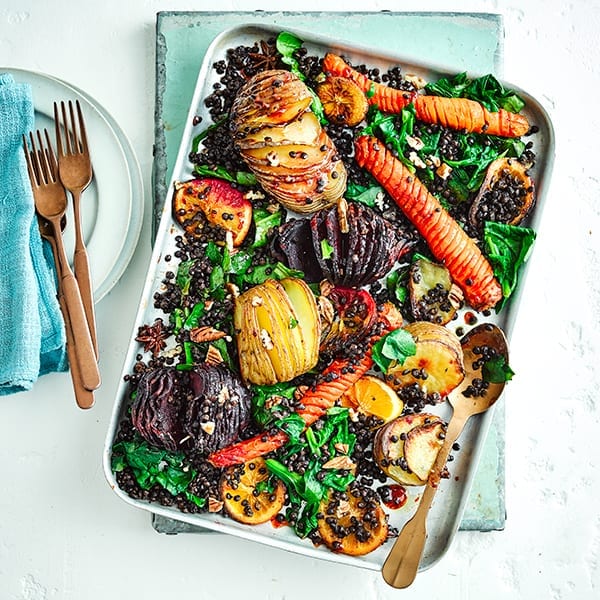
4. Keep fermented food on the menu
Headlines extolling the benefits of fermented food were hard to ignore in 2023, and that’s likely to continue as scientists’ understanding in the area grows. “Most gut health specialists encourage the use of fermented foods,” says Dr Saliha Mahmood Ahmed, gastroenterologist and author of The Kitchen Prescription (Yellow Kite £25).
“They contain live bacteria, which may be helpful to fostering good gut health – and additionally they taste wonderful,” she says. Clinical research into individual fermented (probiotic) food is limited, so it’s unclear which ones are best. “But I’ve always been an advocate of probiotic foods over supplements,” Dr Mahmood Ahmed says. “They’re cheaper and more delicious. Why not try kefir or kombucha, for instance?” Other recommended fermented foods include sauerkraut and kimchi.
Support your gut health by reducing your intake of UPF, eating a wide variety of plant foods and cooking from scratch whenever possible, she recommends.
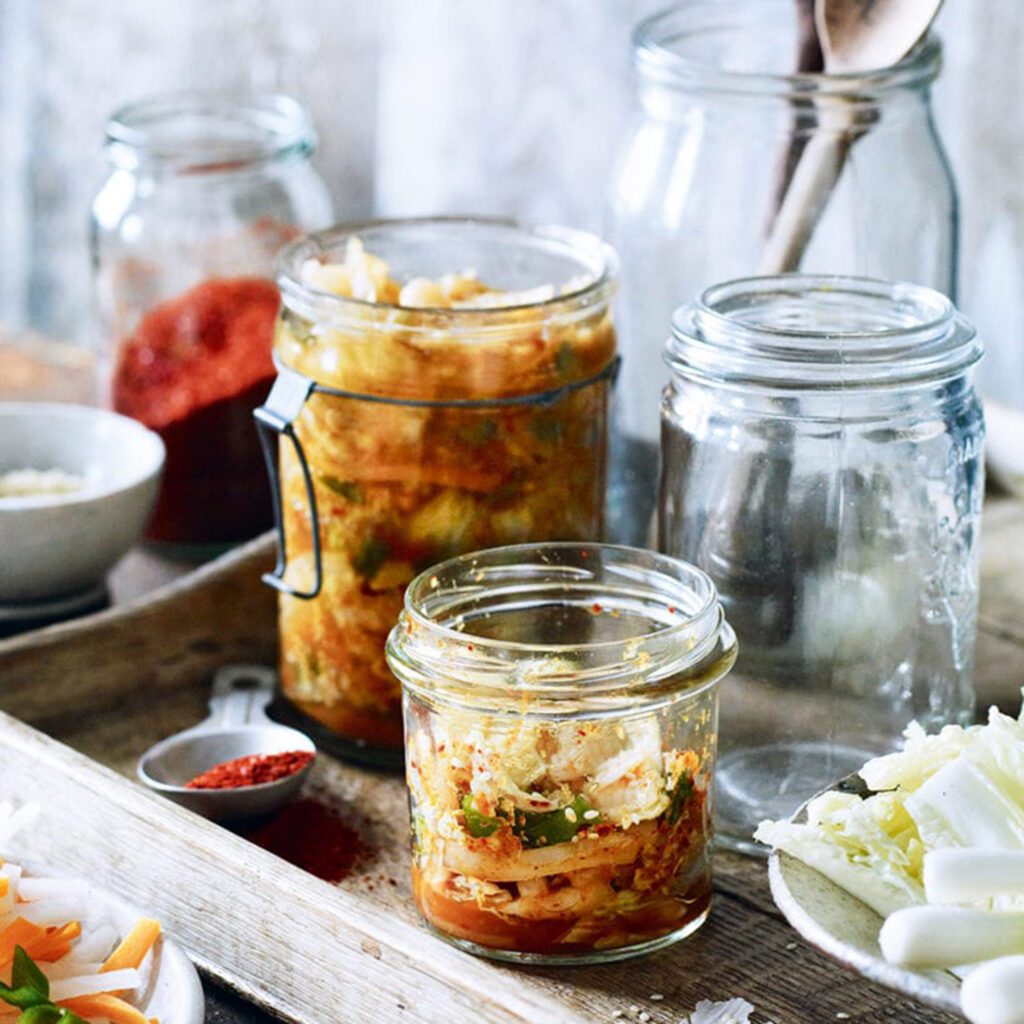
5. Embrace a Mediterranean-style diet
The Mediterranean diet has long been considered one of the healthiest ways to eat, and the latest research supports this, says Dr Oliver Shannon, lecturer in nutrition and ageing at Newcastle University.
Predimed-Plus is a large new study exploring the benefits for weight loss of a calorie controlled Mediterranean diet alongside increased exercise. Dr Shannon says interim findings published in 2023 were “promising”, not only for weight loss, but also for slowing the ageing process and supporting a healthy gut microbiome. Dr Shannon suggests three ways to add a taste of the Mediterranean to your diet…
- Boost your fibre by eating more pulses/legumes or fibre-rich snacks like nuts and fruit.
- Eat with friends and family. “It can be a great way to improve mood and brain function,” he says.
- Enjoy olive oil by drizzling it over fresh bread, pasta, stews and soups. “Go for extra-virgin olive oil. It’s rich in plant polyphenols and healthy fats, which are good for your heart and brain.”
Browse our collection of feel-good dinner recipes to get you started. We’ve got ideas for healthy breakfasts, too.
Subscribe to our magazine
Food stories, skills and tested recipes, straight to your door... Enjoy 5 issues for just £5 with our special introductory offer.
Subscribe
Unleash your inner chef
Looking for inspiration? Receive the latest recipes with our newsletter





